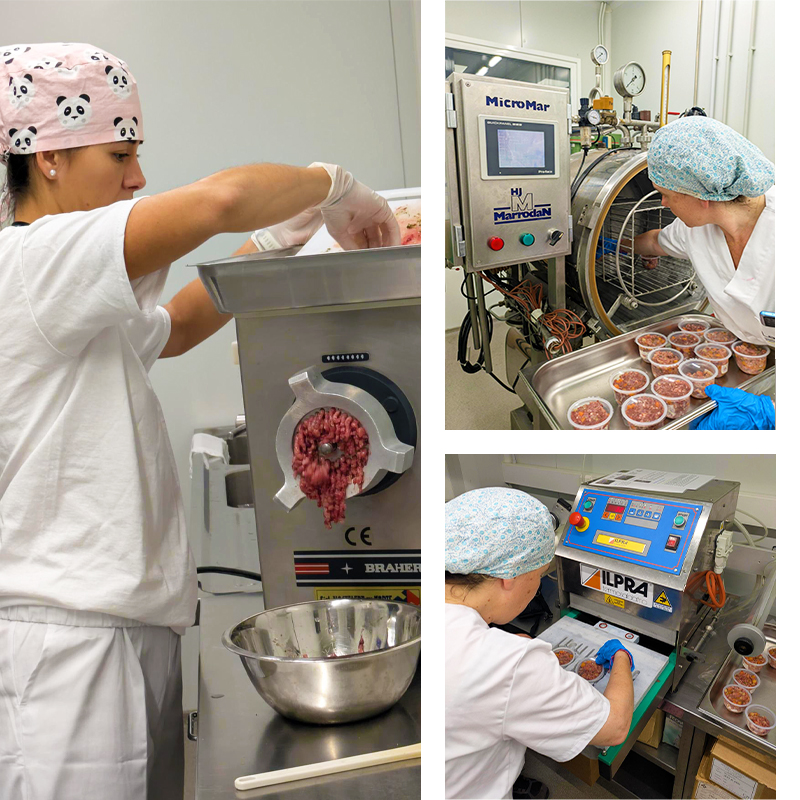Protein innovation for pets
As awareness grows around sustainability and animal well-being, the way we feed our pets is evolving. Consumers are becoming informed and value-driven decision-makers, demanding products that deliver on both nutrition and sustainability.
The pet food industry is entering a new era, driven by innovation, responsibility, and health. At the forefront of this transformation is INNOPET, a pioneering project led by Eroski and Ausolan, with the collaboration of Leartiker Food Design. The project seeks to improve pet nutrition by incorporating functional, sustainable, and innovative ingredients that align with the evolving preferences of today’s consumers.
The project also involves the active collaboration of strategic players in the food innovation ecosystem, Insekt Label Biotech, combining expertise in nutrition, biotechnology, production, and distribution. It is funded through the Mondragon Corporation’s Science and Technology Plan, with Leartiker as the main technological partner, leading technical development and implementation.

Health, sustainability and innovation in pet food
The goal of the INNOPET project is to develop a new generation of pet food: healthier, more sustainable, and technologically advanced, aligned with emerging market trends and the expectations of today’s responsible consumers.
At Leartiker, we are addressing the challenge of integrating insect biomass enriched with high-value compounds into pet food formulations. In collaboration with Insekt Label Biotech, we have worked with two key species: Tenebrio molitor (mealworm) and Hermetia illucens (black soldier fly), selected for their nutritional profile, productive efficiency and low environmental impact.
We evaluated different protein fractions obtained from these insect species, both in the form of insect meal and as protein hydrolysates produced through enzymatic hydrolysis. To understand their potential in pet food applications, we carried out a detailed analysis of their nutritional and functional properties, such as protein content, water and oil retention, solubility, and emulsifying capacity.
This data has played a key role in developing wet food prototypes for dogs and cats. In collaboration with Ausolan, pilot recipes incorporating insect-based ingredients are being formulated and tested. The focus is on evaluating their impact on texture, palatability, and product stability, ensuring a balanced combination of nutritional quality, technological functionality, and sensory acceptance.
Responsible animal nutrition
INNOPET reflects a commitment to developing pet food solutions that are both innovative and aligned with today’s sustainability goals. In a time when environmental impact and animal well-being are key concerns, the project offers practical alternatives that support healthier and more responsible feeding practices.
At Leartiker, we bring our expertise and commitment to this initiative, convinced that collaboration among stakeholders in the food ecosystem is essential to driving meaningful progress toward a healthier and more sustainable future.

